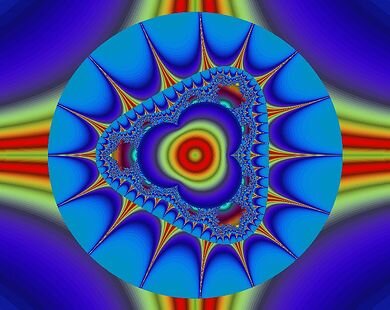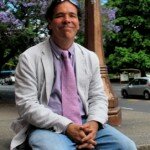Wicked opportunities
Transforming Race Conference — By Guest Author on February 15, 2010 at 05:04By Glenda H. Eoyang, Ph.D., Executive Director, Human Systems Dynamics Institute
Racism is a wicked issue. Of course it is wicked because it limits the hopes and dreams of our children; because it robs communities of joy and fulfillment; because it locks us, as individuals and groups, into self-destructive patterns of behavior. Beyond these consequences, racism is a wicked issue because it derives from complex dynamics that are beyond the reach of traditional, analytical ways of knowing and acting. The emerging science of complex adaptive systems offers new ways to see patterns that self-organize through complex dynamics. Human systems dynamics (HSD) is a field of theory and practice that draws lessons from complexity and uses those lessons to help people see and influence the self-organizing processes that form and re-form the wicked and intractable issues that allow us to victimize ourselves and each other.
One of the first times I talked about human systems dynamics to a group, one woman approached me after the talk with tears in her eyes. She said, “I’ve never before seen a model that had a place for me, but this one does. I am an African American woman, human services professional, mother of an AIDS sufferer, poet, wife, and bicycle rider. I don’t fit neatly into any categories I’ve ever seen, and I don’t think anyone else does either. Your model doesn’t tell me who I am, it asks me to tell you who I am . . . and I thank you.” She saw quickly and clearly the differences between HSD and traditional approaches to social issues. Though the contexts of wicked issues are messy and complicated, these differences are refreshingly simple.
Difference One: Difference is the key to understanding and action. The primary—maybe the only—function of the human brain is to distinguish “this” from “that.” Distinction leads directly into sorting and categories, where this group is same as each other and different from those others. Categories lead to assumptions, and assumptions sometimes lead to mindless action. The ability to distinguish and sort is fundamental to how we, as human beings, know things, make decisions, and take action. Sometimes we become careless, though. We pay attention to differences that don’t make a difference.
With our attention we exaggerate differences that should be minimized or minimize those that should be brought to light. The history of housing segregation provides a perfect example. I want to live near people who speak my language, share my celebrations, and enjoy the foods I like. That isn’t bad, but when institutions turn those individual choices into collective, informal rules or formal laws, then my personal good gets locked into a public evil. I need to be able to make decisions about the differences that make a difference to me and my family. I need to negotiate my own world of difference and meaning making, so that I can act with power and authenticity.
And, I live in a world with others for whom different differences may be crucial. This leads to . . .
Difference Two: The whole is different than the sum of the parts. Traditional logic says that you should be able to take a big problem, divide it into parts, and solve each part separately. Then, when the parts come back together, the big problem is solved. This traditional logic is frequently illogical in complex adaptive systems where the parts relate to each other in significant ways. Separate the parts, and they cease to be what they were. Bring them back together, and the relationships and the parts are forever transformed. Complex adaptive problems can only be understood and solved when the parts are seen in the context of the whole, and the whole is understood in the context of its parts. My husband and I often had this conversation.
He was a Chinese American who had found a comfortable place in an urban, artistic, and academic environment. He was a part of that whole, but he was a unique part because he also was a part of a Chinese culture, a loosely knit nuclear family, and a remarkable ancestral family. As a member of an ethnic diaspora, he lived as a vibrant part of many coherent and powerful wholes. Each was different because of his presence, and he was different because each of the wholes was coherent in its own right. Our frequent conversation was not about how different his experience was from mine (raised by an English teacher in small West Texas towns). Rather we talked about how similar our human experiences were of living in relationship to others in complex networks of wholes that were all greater than sums of parts.
And still, every day, I make decisions and take actions. This leads to . . .
Difference Three: All change is agent-based. Every human being takes action to change his or her environment. We don’t always act consciously or in our own best interests, but we do act. Communities, cultures, institutions, organizations are simply aggregations of many, many individual acts. The systemic patterns we see are a result of the actions of the many that get synchronized over time. So, even though we may think of food security as a systemic issue with institutional causes and global results, we also must remember that parents procure (or not) the food that sustains health of their children.
Sometimes that is easy, sometimes it is difficult. Sometimes institutions and collective patterns make it virtually impossible, but always the individual is seeing and acting for self in a context of local resources and opportunities. No institutional or market solution to food security will be effective if it doesn’t also acknowledge the agency of the individual.
My African American, bicycle-riding friend glimpsed a vision of a world of human interaction that was agent-based, greater than the sum of parts, and driven by difference. This was a world in which she was free to be herself and to value and co-evolve with others. She saw that racism was not just wicked because of its evil effects. She recognized the complex nature of the problem and began to glimpse new opportunities to shift those wicked patterns. It brought her to tears.
SEEING AND INFLUENCING SYSTEMS TO TRANSFORM RACIALIZING
Friday, March 12 at the Transforming Race Conference from 8 - 9:15 a.m.
Glenda H. Eoyang, Ph.D., is a master teacher with deep insights into the art and science of self-organizing systems. As a pioneer in the field of human systems dynamics, Eoyang applies principles of self-organizing to help people thrive in unpredictable environments. Since 1988, she has provided training, consulting, coaching, and facilitation support in both the public and private sectors. As the founder of the field of human systems dynamics, she brings a strong and cogent voice to public discussions about the field.
She currently serves as founding Executive Director of the Human Systems Dynamics Institute, a network of professionals working at the intersection of complexity and social sciences. A master teacher and facilitator, Dr. Eoyang supports change for individuals, organizations, and communities around the world. Her experiences as teacher, leader, entrepreneur, author, and public speaker provide a wealth of resources.
Tags: Racial Equity, racism, Systems Theory, Talking about RaceAuthor: Guest Author (94 Articles)




 Share This
Share This Tweet This
Tweet This Digg This
Digg This Save to delicious
Save to delicious Stumble it
Stumble it





 The Veil: Does it protect Muslim women or subjugate them?
The Veil: Does it protect Muslim women or subjugate them? Randy Credico vs Chuck Schumer and the Drug Laws (Part 1)
Randy Credico vs Chuck Schumer and the Drug Laws (Part 1) Does focusing on individual change distract from fighting structural racism?
Does focusing on individual change distract from fighting structural racism? Cold Case: Coming to grips with racial killings in America
Cold Case: Coming to grips with racial killings in America







